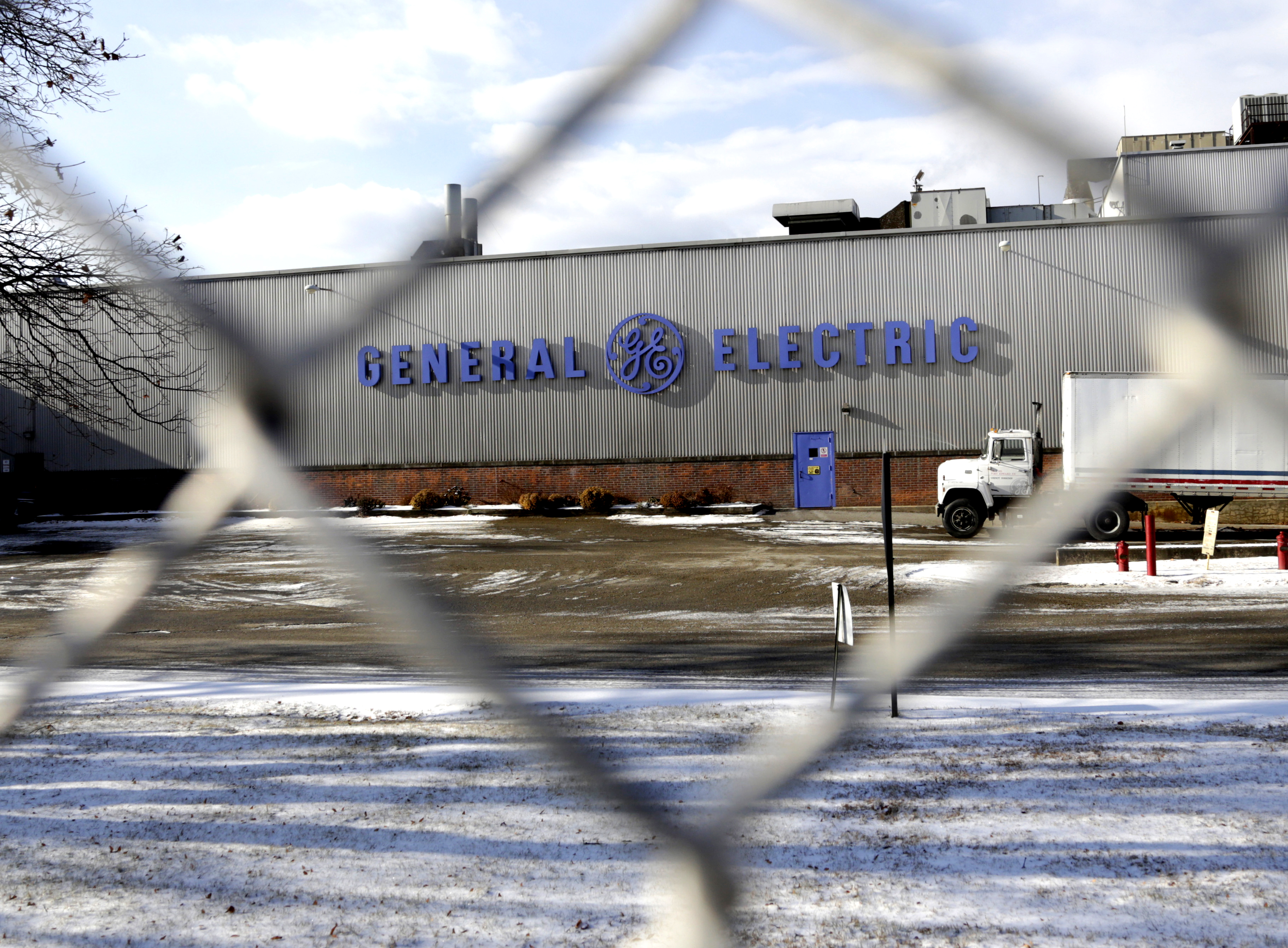GE: The lessons of a corporate giant's decline
"The weight of the past can be heavy indeed"

A free daily email with the biggest news stories of the day – and the best features from TheWeek.com
You are now subscribed
Your newsletter sign-up was successful
The smartest insight and analysis, from all perspectives, rounded up from around the web:
"The weight of the past can be heavy indeed," said The Economist. John Flannery, who took over as chairman and CEO of General Electric 14 months ago, has learned that the hard way. A company veteran, Flannery tried to downsize and decentralize the 125-year-old industrial conglomerate, announcing plans to spin off its health-care division and sell its majority stake in Baker Hughes, an oil-field services firm. So it came as a shock when GE's board ousted Flannery last week, less than a year after he unveiled his turnaround strategy. The board might have been quick to give him the boot because it knew it had waited too long to hasten the departure of his predecessor, Jeffrey Immelt. During his 16 years in charge, Immelt bought and sold businesses worth $126 billion — paying $6 billion in fees to Wall Street banks in the process — but had "rather little to show for it." The company is now worth $100 billion, down $500 billion from its 2000 peak. GE's new boss, Larry Culp, has his work cut out for him. He'll need to make more savings, but shutting down big plants "may well attract the ire of President Trump."
Ever since legendary GE chief Jack Welch retired in 2001, GE has been looking to find the right business mix to regain investor confidence, said Holman Jenkins at The Wall Street Journal. It's been a "plodding, slow-motion hunt," and GE's mess of businesses — light bulbs, wind turbines, insurance, and more — means the company "is unlikely to register buried problems until they are well advanced." And boy does GE have problems, said Jim Cramer at The Street. Immelt's mistakes were so grave that GE needs "the financial equivalent of a Truth and Reconciliation Commission." Its insurance division charged "a pittance" for long-term care policies. Immelt also doubled down on power plants when the sector was in decline. Same with oil and gas, when "oil ran to $100" a barrel and was bound to fall.
The Week
Escape your echo chamber. Get the facts behind the news, plus analysis from multiple perspectives.

Sign up for The Week's Free Newsletters
From our morning news briefing to a weekly Good News Newsletter, get the best of The Week delivered directly to your inbox.
From our morning news briefing to a weekly Good News Newsletter, get the best of The Week delivered directly to your inbox.
GE is really "rolling out the red carpet" for its new CEO, said Brooke Sutherland at Bloomberg. The first outsider to run the firm, Culp is getting a base salary of $2.5 million, the highest in the S&P 500 index. And if GE's stock rises 150 percent by the fall of 2022, he'll "pocket a one-time equity award valued at more than $230 million." The company likely had to throw money at Culp — the former boss of Danaher, a smaller industrial conglomerate — to take on a complex turnaround. But this outsize compensation package sends the wrong message to GE's rank and file, many of whom could lose their jobs in cost cuts.
We can all learn from this giant's troubles, said Rob Cox at Reuters. In 2016, Boston dangled juicy inducements — tax breaks, infrastructure investment, private jet parking — to get GE to relocate from Fairfield, Connecticut, to Beantown. For all that effort, Boston is getting a GE that's shedding value fast, $200 billion in the past two years alone. Now 20 cities are competing to host Amazon's second headquarters, wooing the firm with similar perks. Boston's experience with GE should serve "as a reminder that the biggest, most profitable companies don't always remain that way."
A free daily email with the biggest news stories of the day – and the best features from TheWeek.com
-
 ‘Restaurateurs have become millionaires’
‘Restaurateurs have become millionaires’Instant Opinion Opinion, comment and editorials of the day
-
 Earth is rapidly approaching a ‘hothouse’ trajectory of warming
Earth is rapidly approaching a ‘hothouse’ trajectory of warmingThe explainer It may become impossible to fix
-
 Health insurance: Premiums soar as ACA subsidies end
Health insurance: Premiums soar as ACA subsidies endFeature 1.4 million people have dropped coverage
-
 The pros and cons of noncompete agreements
The pros and cons of noncompete agreementsThe Explainer The FTC wants to ban companies from binding their employees with noncompete agreements. Who would this benefit, and who would it hurt?
-
 What experts are saying about the economy's surprise contraction
What experts are saying about the economy's surprise contractionThe Explainer The sharpest opinions on the debate from around the web
-
 The death of cities was greatly exaggerated
The death of cities was greatly exaggeratedThe Explainer Why the pandemic predictions about urban flight were wrong
-
 The housing crisis is here
The housing crisis is hereThe Explainer As the pandemic takes its toll, renters face eviction even as buyers are bidding higher
-
 How to be an ally to marginalized coworkers
How to be an ally to marginalized coworkersThe Explainer Show up for your colleagues by showing that you see them and their struggles
-
 What the stock market knows
What the stock market knowsThe Explainer Publicly traded companies are going to wallop small businesses
-
 Can the government save small businesses?
Can the government save small businesses?The Explainer Many are fighting for a fair share of the coronavirus rescue package
-
 How the oil crash could turn into a much bigger economic shock
How the oil crash could turn into a much bigger economic shockThe Explainer This could be a huge problem for the entire economy